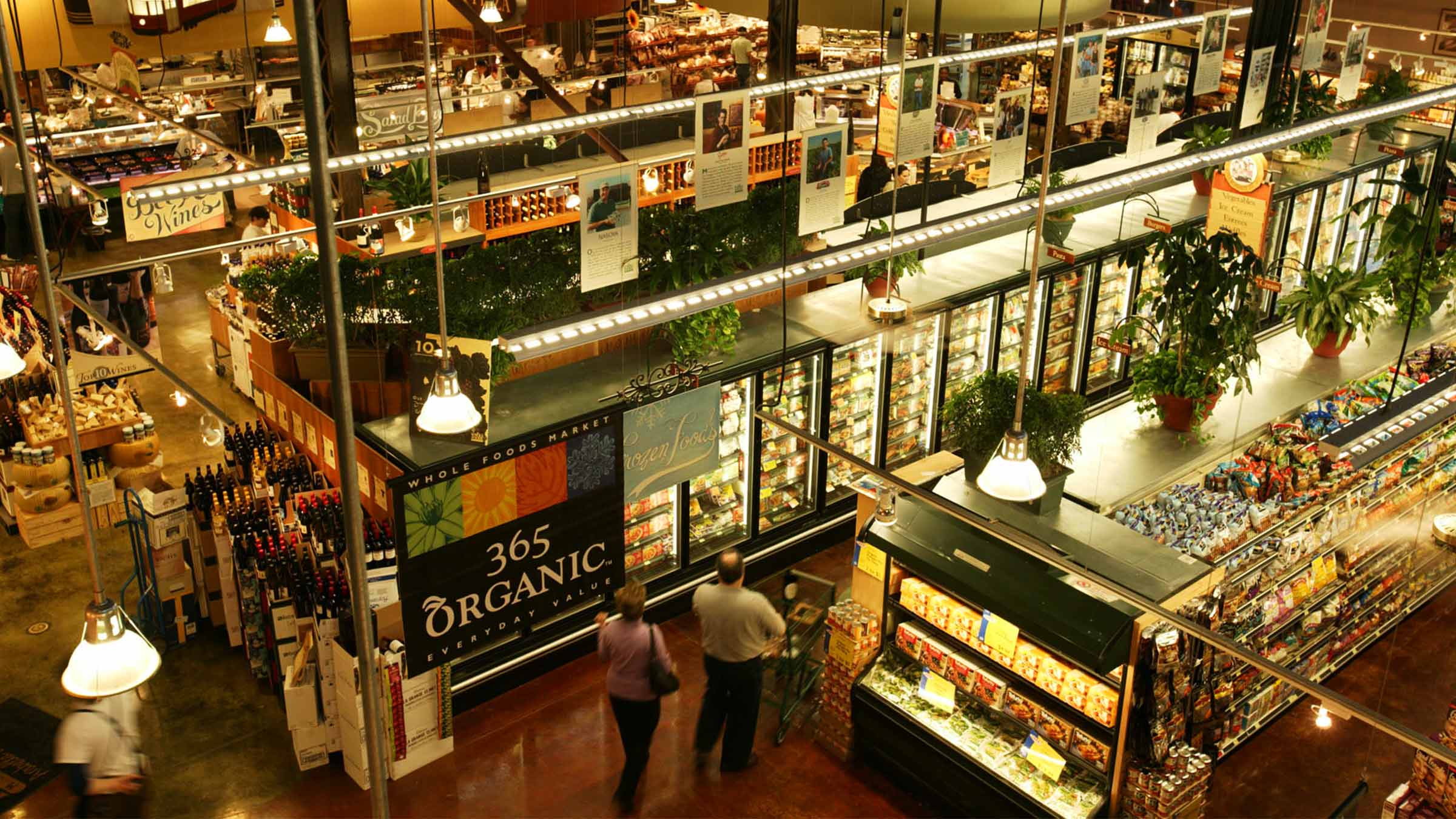In 1999, The MBS Group was called to a meeting in Notting Hill Gate. There we met Irish-raised Bryan Meehan who – a year earlier – had opened luxury grocery store Fresh & Wild in the UK, having got to know Whole Foods in the USA whilst studying at Harvard. I still remember what a buzz the store had. Five years later, Whole Foods snapped up the store, along with the six others he had opened by then, for US$38m. Bryan’s brilliance was the speed with which he was able to import an innovative concept into the UK – so much so that the business that had first inspired him would later look to him for inspiration.
His success came about because he realised that a niche existed in the UK for an alternative to the supermarket, for a store that offered something more than just price competition. That Whole Foods itself quickly saw Bryan’s success must have been the ultimate validation of his efforts. Fresh & Wild conjured up an image of the all-natural food on sale within the stores and, like at Whole Foods, their approach to branding, stores designed to promote the authenticity of the produce and knowledgeable staff who rigorously buy into its core values proved a hit with consumers, but not with the success it has had in its home market.
That could well be because Waitrose and M&S were just far too developed here for there to be a need for Whole Foods. Both brands are real centres of excellence and, interestingly, they are tagged to general merchandise businesses. The evolution of Fresh & Wild and Whole Foods in the UK is not dissimilar to the earlier success of the Seattle Coffee Company. Missing the coffee they had been used to in their hometown of Seattle – also home of Starbucks – in 1994, Scott and his wife Ally co-founded Seattle Coffee Company, the first gourmet coffee retailer and wholesaler in the UK. As CEO, Scott built the business to 75 retail locations in under three years (10 of which were operated under license in South Africa, the Middle East and Southeast Asia). While Starbucks was growing at a frenetic pace in the US, Ally and Scott had stolen a march on their international expansion. As Scott said at the time, they “spent the last three years getting the UK streets warmed up for the arrival of Starbucks.”
They sold the company to Starbucks in May 1998 for a stonking price of about 1.8 million shares of Starbucks stock, which valued the deal at around $84.6 million. Following the sale, Scott acted as President for Starbucks UK and subsequently President for Starbucks Europe, during which time he authored the company’s European Strategic Plan. Starbucks bought the business because it had no choice. It needed to be in the UK as a brand and when it arrived on the UK scene in 1998, compared to anything before it, the Svensons’ brand – and later Starbucks’ – was much more cosmopolitan and more overtly American. To a UK audience, the image of Seattle evoked a sense of a cool, new America.
Both Fresh & Wild and the Seattle Coffee Company provided ways for US companies to expand internationally in a relatively seamless way; much of the groundwork had already been laid already.
The UK has long been a welcoming home for US businesses, from McDonald’s to Coke and Nike to Apple. But success is far from guaranteed. While several US companies have been helped by a vision of American cool as they’ve landed in the UK, the best companies have been careful to really understand the UK market before they grow, rather than relying on hype alone. As the US gourmet burger trend continues to grow in the UK, I’m curious to see who will succeed. With the likes of Five Guys and Shake Shack knocking on the door, I’m wondering if their arrival is too long after Byron took off. After all, it was the taste of the burgers Tom Byng tasted in Rhode Island that led him to found Byron in the first place.
What do you think to be the next big thing to emerge in the UK from another country? Let me know at moira@thembsgroup.co.uk, and have a fantastic weekend!








